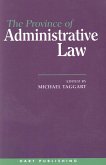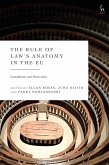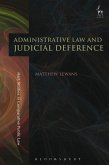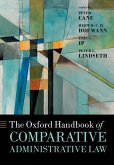Winner of the 2022 Inner Temple New Authors Book Prize.
This book seeks to further our understanding of the nature of administrative law doctrine and adjudication. It has three main aims. The first is to improve understanding of administrative law's 'anatomy' by pulling the subject apart and exploring the nature of the legal structures at play in adjudication. In doing so, the book emphasises three main ways in which administrative law's anatomy is both complex and diverse, namely:
- administrative law doctrine interacts with a broad array of legislative frameworks;
- administrative law adjudication seeks to accommodate a variety of legal values; and,
- administrative law is concerned with legal relationships of different kinds.
The second aim is to illustrate the importance of recognising the complexity and variety of administrative law's anatomy in three particular doctrinal contexts: procedural review, legitimate expectations and standing.
The third and final aim is to raise an important but under-explored question: is it plausible and useful to attempt to make sense of administrative law doctrine by reference to a singular organising concept or principle?
The overarching message of the book is one of cynicism. The complexity and variety of administrative law's legal structures probably means that attempts to explain the field 'monistically', while they may capture important themes, will be unhelpfully reductionist. Ambitious and thought-provoking, this is an important new statement on administrative law.
This book seeks to further our understanding of the nature of administrative law doctrine and adjudication. It has three main aims. The first is to improve understanding of administrative law's 'anatomy' by pulling the subject apart and exploring the nature of the legal structures at play in adjudication. In doing so, the book emphasises three main ways in which administrative law's anatomy is both complex and diverse, namely:
- administrative law doctrine interacts with a broad array of legislative frameworks;
- administrative law adjudication seeks to accommodate a variety of legal values; and,
- administrative law is concerned with legal relationships of different kinds.
The second aim is to illustrate the importance of recognising the complexity and variety of administrative law's anatomy in three particular doctrinal contexts: procedural review, legitimate expectations and standing.
The third and final aim is to raise an important but under-explored question: is it plausible and useful to attempt to make sense of administrative law doctrine by reference to a singular organising concept or principle?
The overarching message of the book is one of cynicism. The complexity and variety of administrative law's legal structures probably means that attempts to explain the field 'monistically', while they may capture important themes, will be unhelpfully reductionist. Ambitious and thought-provoking, this is an important new statement on administrative law.









